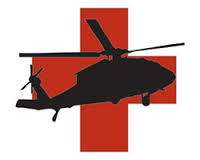What are challenges you may face while in paramedic school?
Paramedic students have reported struggling with:
Time management. Each week, you’re going to have to go to class (16 hours), study (suggested: 6 hours), go to clinical rotations at various sites (8 - 36 hours), and probably juggle a job on top of that. Be prepared to put your social life on the backburner and cut out the nonessentials. Paramedic school is not the time to make life-altering decisions such as moving or getting married.
Cardiology. Know how to read an EKG and be able to identify common rhythms. The most commonly recommended resource is Dale Dubin’s Rapid Interpretation of EKGs, but you can also watch YouTube videos to help learn your rhythms.
Drugs and pharmacology. During your clinicals and field internships, you’re not going to be expected to have the scene control of a ten-year paramedic. You will, however, be expected to know your medications forwards and backwards. Flashcards will help you memorize actions, indications, doses, and contraindications.
People skills. If you chose to enter paramedic school without any street experience as an EMT, you might be shy around patients and hospital personnel. This is something you have to get over. Paramedic instructors will help you out if you ask, but you must ask.
As an EMS student, paramedic school will test the limits of your ability. Since it’s such a large commitment, it’s important to know the difference between what’s required by the program and what you can personally deliver, and then to take the steps necessary to close that gap.






